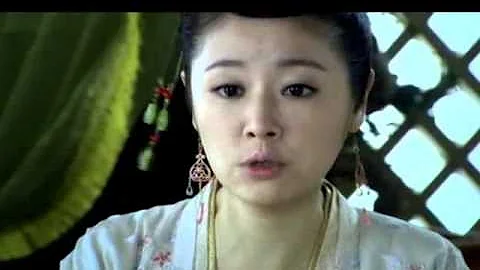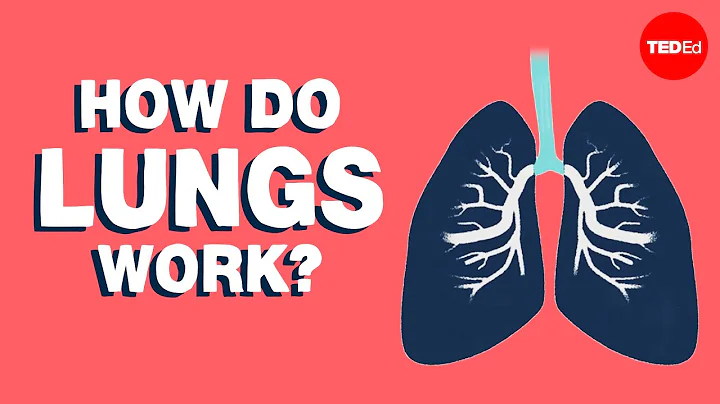
In 2010, 92-year-old Fu Ya died of illness.
, this strong woman who married Chen Geng at the age of 25 and raised five children by herself after Chen Geng died of illness, ended her legendary life with a calm and calm attitude.
But what everyone didn’t expect was that not long after Fu Ya’s death, Chen Geng’s children submitted an application to the central government: they hoped to move their father Chen Geng’s mausoleum out of Babaoshan and bury him with his ex-wife Wang Genying.
At the beginning, the central government was always hesitant about this request; until the children told the party organization that this wish was actually the last wish of their mother Fu Ya.
The last instructions left by this 92-year-old man before his death were:
If he does not want to be buried with his husband, he can apply to move Chen Geng’s mausoleum to Xiangxiang, Hunan; if the application is successfully approved, Chen Geng and his ex-wife Wang Genying will be buried together.
Many people are confused about Fu Ya's decision:
In the war-torn era, Fu Ya and Chen Geng broke through the obstacles and were able to stay together; although they only stayed together for 18 years, they had a personality that was enviable to others. Love and happiness.
Since Chen Geng died of illness in 1961, Fu Ya, who was only 43 years old, endured hardships for the rest of his life, raising five children alone and never thought of remarrying.
A life-and-death relationship, growing old together... This is the love that many people dream of; but why did Fu Ya decide not to be buried with Chen Geng before he died?
What kind of unspeakable secrets are there, or are there regrets about the past that are difficult to reconcile?
For all the questions, let us start from the beginning of the story!
[Chen Geng and Fu Ya: Revolutionary partners who helped each other in adversity during the war]
Fu Ya and Chen Geng met in 1940.
That year, Fu Ya's art troupe went to the Anti-Japanese Front to perform; when they came to Panlong Town, Wuxiang County, Shaanxi Province, she and the female troupe members went to the home of Wang Zhitao, the training director of the Anti-Japanese University, to borrow props, and happened to meet Chen Geng who was recuperating there.
At that time, Chen Geng had been ordered to lead the main force of the 386th Brigade and the 18th Group Army Headquarters Special Regiment into the Taiyue District, establish the Dayue Military Region, and serve as the commander of the military region; the dangerous battles filled with bullets and bullets also left many enemies, large and small, for this brave and tenacious general. of scars.

At the home of Training Minister Wang Zhitao, Fu Ya happened to hear Chen Geng joking with his comrades:
"When I was injured in the battle in Huichang, I really wanted to shoot myself. Thinking that I was still young and could still fight for communism while I was alive, I just pretended to be dead..."
's humorous words made young Fu Ya couldn't help but take another look at Chen Geng.
This is a handsome and bold young general. It seems that the scars on his body, large and small, cannot stop his innate sense of humor.
Even when talking about that heart-wrenching and bloody struggle, this man still maintains "Chen Geng-style humor."
Funny, optimistic, and tenacious...this is Fu Ya's first impression of Chen Geng.
But how could Fu Ya have thought that this general who was full of witty words and witty words was always wrapped in heavy sadness in his heart.
The heroic sacrifice of his wife Wang Genying was a pain that he could not let go of in his life.
Like countless people in the Republic of China, Chen Geng also had an arranged marriage "ordained by his parents"; in order to compete with the old feudal system, this passionate young man ran away from home on his wedding day and resolutely devoted himself to the revolution.
Later, Chen Geng and Wang Genying met.
That heroic, courageous and resolute woman became the unique first wife in his heart.

Chen Geng and Wang Genying
confessed their love for many times in a row and almost stalked each other. Only then did Chen Geng win the beauty back, and he and Wang Genying had a happy family.
However, the choice to devote themselves to the revolutionary struggle also made the couple always face the danger of life and death.
In February 1939, the Japanese army concentrated its forces to conduct an all-round raid on the Southern Hebei Anti-Japanese Base Area, preparing to capture the Jinan Anti-Japanese Base Area in one fell swoop; that year, Chen Geng led the 386th Brigade of the Eighth Route Army to launch a fierce ambush battle, which lasted three days and nights. The enemy's lure and attack finally led the Japanese army into the encirclement.
During the fierce battle that lasted for eight hours, Chen Geng led the soldiers to resist the enemy bravely;
Although they won the battle, the 386 brigade led by Chen Geng also paid a heavy price due to the large disparity in weapons and equipment.
It was also this battle that caused Chen Geng to lose his beloved wife Wang Genying forever; Wang Genying, who was only 32 years old, was unfortunately surrounded by enemy troops in order to protect important documents and eventually died heroically.
"Today is a day that I cannot forget, and it is also my most painful day."
The death of his wife gave Chen Geng an almost fatal blow.
For many days after that, he locked himself in the room and studied the battle plan with great concentration, just to make the enemy pay with blood.
So much so that later, the Japanese army, which had suffered repeated heavy losses, directly put slogans on the trucks, looking for the 386th Brigade to take revenge.
Fu Ya’s acquaintance with Chen Geng was actually intentional by the organization.
Everyone did not want this cheerful and humorous general to suffer from the pain of losing his wife, so they tried to find a way to introduce him to a new wife; and the smart and young Fu Ya became the candidate unanimously recognized by everyone.
Fu Ya, born in 1918, is from Jingdezhen, Jiangxi.
She has been a passionate young woman with a firm fighting spirit since she was a student; later, in order to seek a way to save the country, Fu Ya came to Yan'an and entered the Anti-Japanese Military and Political University to study. After graduation, she stayed in Yan'an to work in the Art Troupe of the Political Department. The acquaintance between
and Fu Ya also left an excellent impression on Chen Geng.
But when Chen Geng learned that the organization intended to introduce the two people, he hesitated.
He said to Fu Ya: "Thank you for choosing me, but I must explain my past to you. I once had a beloved wife, her name was Wang Genying, and she was a strong and kind person. But she died in 1939 , I vowed to keep the festival for her for three years, so you have to wait for me for two more years, okay?"
This sincere confession not only did not arouse Fu Ya's resistance, but also made the young Fu Ya see this general. Frankness, loyalty and responsibility towards feelings.

Chen Geng and Fu Ya
Out of this recognition and admiration, Fu Ya agreed to Chen Geng's request; in the next two years, the two maintained a relationship of friends. Of course, the revolutionary work and the same ambition also made the two Have a deeper understanding.
On February 25, 1943, at the suggestion of Liu Bocheng and Deng Xiaoping, Chen Geng and Fu Ya held a simple and warm wedding; at the wedding, Chen Geng promised Fu Ya in front of everyone: "I will respect you." My revolutionary ambition will not hinder your efforts to make progress in the future, nor will I transfer you to be my secretary. Moreover, I will love you forever. This is what he said. Do this.
After getting married, Chen Geng gave Fu Ya the respect he could.
At that time, Luo Ruiqing transferred Fu Ya from the main school of the Anti-Japanese University to work at the Lu Xun Art School of the Field Political Department; because of his busy work, Fu Ya could only go back every seven or eight days. Sometimes, if he was too busy, he would not bother to go home. .
But Chen Geng had no objection to his wife's decision; it was just that he, who was humorous and humorous, also expressed his longing for Fu Ya in his own unique way.
At that time, the two people’s workplaces were separated by a wide river.
Whenever Chen Geng misses Fu Ya, he will lead a group of people to the river and shout: "Fu Ya is back! Fu Ya is back!"
Fu Ya is also called famous by Chen Geng. Office units on both sides of the river, Everyone knows that Chen Geng’s wife is Fu Ya.
As the situation in the Anti-Japanese War became increasingly tense, this married couple also deeply understood what "a letter from home is worth ten thousand yuan"; due to the needs of the war, they were often separated from each other, and their organizations changed at any time. The correspondence address is not fixed either.
Therefore, every time he received a letter from Fu Ya, Chen Geng felt as if he had found a treasure. He often read a letter many times.
A marriage that involves less gathering and more separation has never affected the relationship between the two.

In 1945, Chen Geng and Fu Ya’s child was born, named Chen Zhijian.
At that time, Chen Geng and Fu Ya were both living in Yan'an, and their living conditions were relatively difficult.
In order to supplement nutrition for his wife, Chen Geng used his allowance to exchange sheep bones for making soup; later, for the sake of his wife's health, Chen Geng actually became a ridiculous "thief".
Chen Geng had a good friend named Chen Shaomin; her home would always have red dates and brown sugar. In order to replenish his wife's health, Chen Geng secretly went to get them while Chen Shaomin was not at home. As a result, Chen Shaomin came back just as he was about to go out.
Chen Geng quickly climbed onto the bed and hid himself under a quilt, but he was still caught.
Chen Shaomin also knew Chen Geng's character. While pretending to hit him, he smiled and handed the red dates to Chen Geng.
After the end of the Anti-Japanese War, Chen Geng participated in the War of Liberation, the Vietnam War, and the War to Resist U.S. Aggression and Aid Korea. After returning to China, he served as the dean of the Military Engineering College of the Chinese People's Liberation Army.

During these busy years, Fu Ya took care of five children. Among them, the eldest son Chen Zhifei was the only son of Chen Geng and Wang Genying. For this child who lost his mother when he was young and lived on the street selling newspapers, Fu Ya gave him great care. He received more love and care from him; and the sensible Chen Zhifei also regarded the young Fu Ya as his mother and repaid Fu Ya with warm respect and consideration.
can say: Since Fu Ya married Chen Geng, she has always supported the burden of the family with her soft shoulders; while taking care of the children, she also takes into account her own work responsibilities, and pays careful attention to her husband's physical condition.
In 1955, Chen Geng was awarded the title of the fourth general of the founding of the People's Republic of China.
This brave and capable general who conquered the north and south also had a more arduous job in peacetime.
But the dangerous experience of gunfire and bullets in his early years also made Chen Geng's body full of worrying hidden dangers.
Fu Ya knew that Chen Geng regarded work as life and could not bear to organize it many times. He could only take care of Chen Geng's gradually weakening body with careful care.
Unfortunately, Chen Geng, who worked hard day and night, finally died of illness in Shanghai Hospital in 1961.
At the age of 58, he was the first founding general of New China to die.
The sudden bad news made his wife Fu Ya and their children heartbroken.
Especially for Fu Ya: She and Chen Geng have known each other since the 1940s, they are husband and wife, and they are also comrades who share the same sorrow.
Chen Geng's sudden death plunged young Fu Ya into deep grief.
When Chen Geng passed away, the most worrying thing was his children; although Chen Zhifei, born to Wang Genying, had grown up, his and Fu Ya's four children were not yet adults; he was not worried about his children, let alone his wife, because he left behind The burden given to her is too heavy!
But what everyone expected was that Fu Ya, who lost her husband, did not live passively; instead, he nurtured his children to become talents with a strong and optimistic attitude; For the family and the growth of the children, 43-year-old Fu Ya never remarried.
In special times, she used her keen observation skills to successfully protect Chen Geng's manuscripts, diaries and other relics; to Chen Geng's ex-wife, the mother of martyr Wang Genying, Fu Ya also mailed living expenses every month and entrusted someone to take care of the old man's life until The old man passed away.
By the 1980s, Fu Ya was already in his sixties.
But even though the years have passed, this infatuated and tenacious woman has always missed her husband Chen Geng in her own way.
In order to let more people know the story of this general, she compiled all Chen Geng's diaries and manuscripts, which later became "Chen Geng's Diary". When
was sorting out the diary, Fu Ya discovered Chen Geng's thoughts and memories of Wang Genying, as well as the sweet memories the two had during Wang Genying's lifetime.
As Chen Geng's widow, Fu Ya not only was not jealous, but also developed deep respect for Wang Genying's heroic sacrifice.
In order to let more people know about this heroine who served the country with his life, Fu Ya personally visited comrades who fought with Wang Genying in his later years. Based on their memories and narratives, he published "How to Serve the Country: A Woman's Life - Biography of Martyr Wang Genying". 》.
's profound understanding of justice is beyond the reach of ordinary people.
[Fu Ya in his later years: Staying alone for love for 49 years, leaving a last word before his death: I will not be buried with your father]
After finishing busy with matters related to her husband Chen Geng, Fu Ya's physical condition was no longer optimistic.
In his later years, Fu Ya often had to be hospitalized due to health problems.

Perhaps because he had a premonition that his time was running out, Fu Ya called his children and left his last wish:
"After I die, I don't want to be buried with your father!"
Faced with the confusion of his children, the weak Fu Ya Ya turned to his eldest son Chen Zhifei and said:
" Your mother is a great heroine, and she deserves your father's love. After I die, you can apply to have your father's ashes moved out of Babaoshan and buried in Xiangxiang, Hunan, with you." The mothers were buried together. "
After hearing what their mother said, the children burst into tears.
All along, the children have understood Fu Ya’s love for his father Chen Geng; it is this love that allows Fu Ya, who is only 43 years old, to support a family by herself. No matter how difficult and dark the world is, she has never stopped. I have thought about remarrying; the difficulty of being single for 49 years cannot be summed up in a few words.
But it was not until Fu Ya's death that his children discovered that the love their mother gave to their father contained a deep love that she would never regret until her death, as well as an open-minded and tolerant spirit. During the 18 years that she had been with her father, she had always understood that Chen Geng had a deep love for him. Wang Genying misses her deeply and knows the fate of the turbulent times. Burying Chen Geng and Wang Genying together is the best fulfillment for them.
The children cried bitterly and were once again moved by their mother's broad mind.
On January 4, 2010, Fu Ya died of illness in Beijing at the age of 92.
In order to fulfill the mother's last wish, the children reported the truth to the relevant organizations.
The central leadership attached great importance to Fu Ya's decision. After repeated discussions, the application was finally approved.
A year later, the tomb of General Chen Geng was moved from Babaoshan Cemetery.
In compliance with their mother's last wish, the children buried their father's mausoleum on the back hill of Quanhu Village in Xiangxiang County, together with martyr Wang Genying who sacrificed his life for 72 years.

At the same time, in order to reunite Fu Ya and Chen Geng, under the arrangement of the eldest son Chen Zhifei, Fu Ya's mausoleum was also moved to Xiangxiang, Hunan, and he was buried next to his father Chen Geng.
At this point, Chen Geng and the two ladies are finally reunited!
And the touching deeds written by this woman who was deeply affectionate and unrepentant until death, and wrote with love, are worthy of our eternal admiration and memory.
————END————
Other recommendations——
Author: Chu Shi
From the legendary experiences of influential figures, we can extract the enlightenment mottos of ordinary life!
original works, plagiarism will be investigated;
picture source network, infringement will be deleted immediately!
If you like this article, you might as well give it a like before leaving~





















